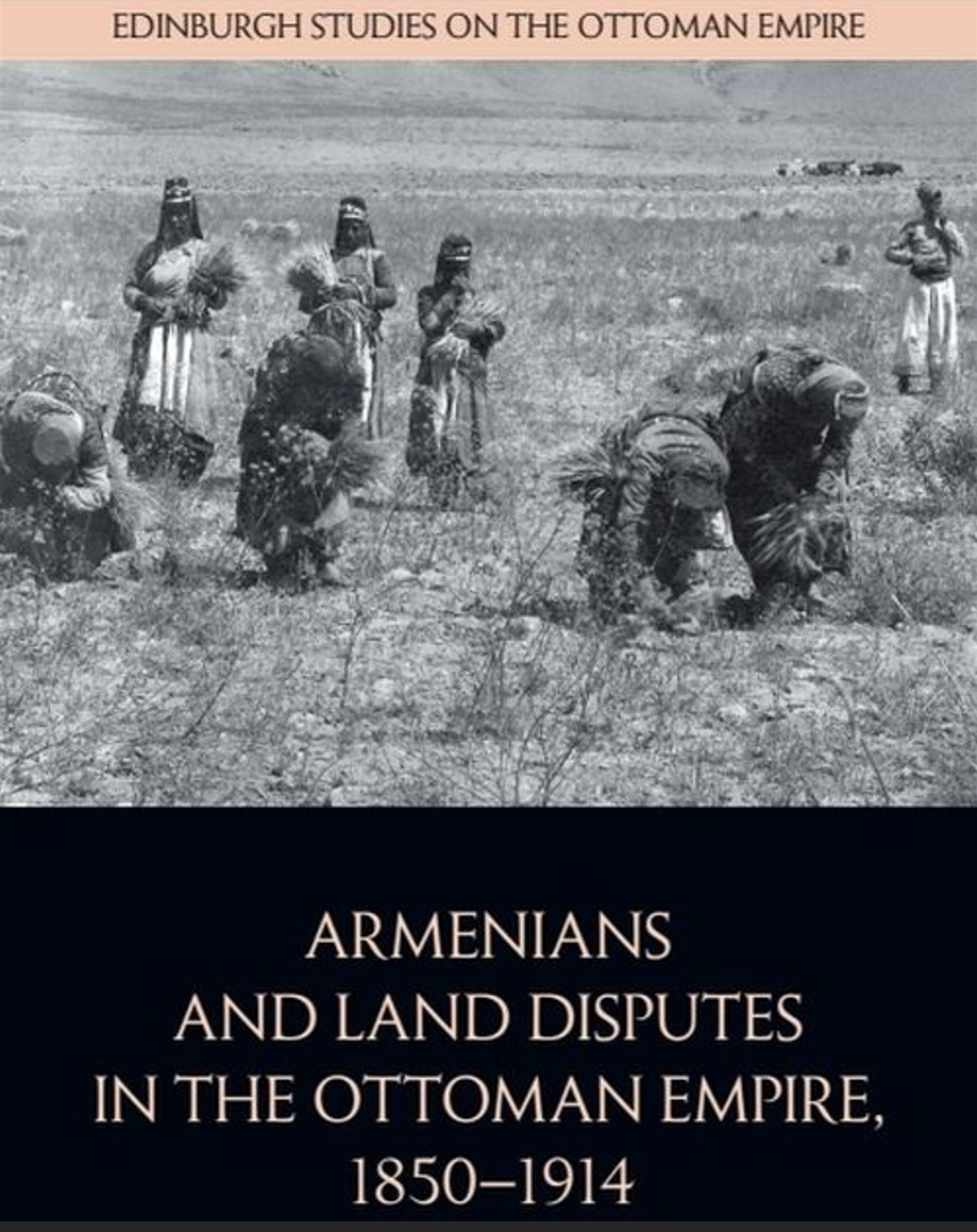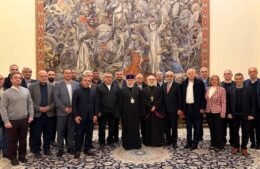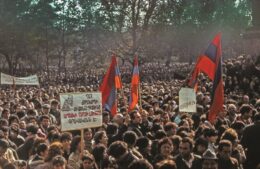Mehmet Polatel’s New Book Explores ‘Armenians and Land Disputes in the Ottoman Empire’
- (0)

Edinburgh University Press announced the publication of Dr. Mehmet Polatel’s “Armenians and Land Disputes in the Ottoman Empire, 1850–1914.” The book is part of the series Edinburgh Studies on Ottoman History edited by Kent F. Schull (Binghamton University).
“Armenians and Land Disputes in the Ottoman Empire” traces the transformation of land disputes involving Armenians into the Armenian land question from the mid-nineteenth century to the outbreak of the First World War. Situating this event into its historical context marked by the rise of the central administrative state, encroachment of capitalism and the new territorial turn that changed the political significance of land ownership, this book argues that the Armenian land question was shaped by two conflicting trends: liberalization and nationalization of land.
The book also shows how mass violence transformed competitive struggles and socioeconomic life and structures on the one hand, and how these struggles strained intercommunal relations and blocked possibilities of normalization on the other. Examining the actions and discourses of Armenian and Kurdish intellectuals, Muslim powerholders in the provinces, and Ottoman officials and the Istanbul elite – along with the institutions, local and national, that sustained these groups, it populates a large blank space in our existing picture of the late Ottoman Empire.
Polatel commented on the book, saying, “I am thrilled that my book on the emergence and transformation of the Armenian land question in the Ottoman Empire has been published. I first encountered this issue when I began my graduate studies, and since then, I have traced the struggle of Ottoman Armenians for their lands. I am delighted that my efforts to trace this issue led to the publication of this book, which is the first manuscript in English to trace the evolution of this problem, which deeply affected state-society relations and inter-communal relations in the late Ottoman Empire. I hope it will contribute to deepening our understanding of this period and trigger new debates in the field.”
“This groundbreaking work analyses the genealogy of the Armenian land question from the second half of the 19th century to the eve of World War. Mehmet Polatel has made a monumental contribution from both empirical and theoretical perspectives to the study of the agrarian question in the Ottoman Empire and beyond,” said Prof. Bedross Der Matossian, University of Nebraska-Lincoln.
“With meticulous research, deep archival dives and acute theoretical insights, Mehmet Polatel restores the lost history of the dispossession of the lands of Ottoman Armenians through misuse of the law and deployment of violence. Polatel brilliantly tells the tragic tale of nation formation as a process by an imperial government aided by local officials and ordinary people. With graphic examples, precision in his analysis and a deep humanistic sensibility, he reveals how ideology, greed and the search for security lead to horrific crimes against humanity,” said Prof. Ronald Grigor Suny, University of Michigan.

Dr. Mehmet Polatel is the academy coordinator for the Minority Rights Academy at the Hrant Dink Foundation based in Istanbul. He received his Ph.D. from Bogazici University in Istanbul with his dissertation on the emergence and transformation of the Armenian land question in the late Ottoman Empire. Prior to receiving his Ph.D., he earned a BS in International Relations from the Middle East Technical University in 2007, and an MA in Comparative Studies in History and Society from Koç University, Istanbul in 2009.
After receiving his Ph.D., he was awarded Manoogian Postdoctoral Fellowship in Armenian Studies from the University of Michigan, Ann Arbor. He was a junior postdoctoral fellow at the USC Shoah Foundation Center for Advanced Genocide Research in 2019-2020. His main research interests are state-society relations, minority rights, property politics, cultural heritage, the Armenian Genocide, and the dispossession of Armenians. He co-authored a book with Uğur Ü. Üngör entitled “Confiscation and Destruction: Young Turk Seizure of Armenian Properties” (Bloomsbury, 2011) and published several articles and book chapters on the Hamidian massacres, land question, and the Armenian Genocide.
Dr. Polatel’s “Armenians and Land Disputes in the Ottoman Empire, 1850–1914” is available for purchase online.


















